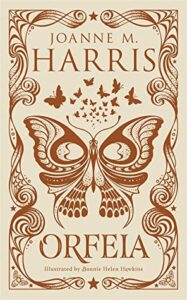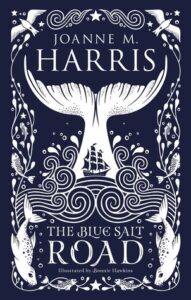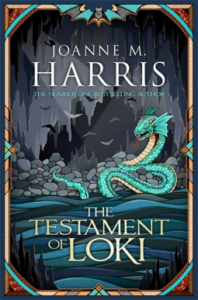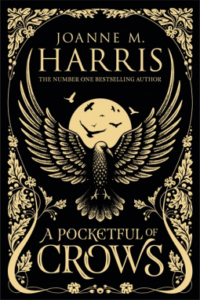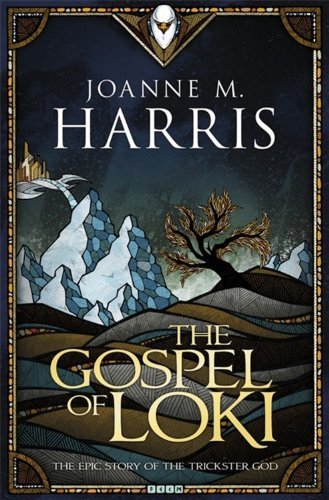A friend, Lynn, posted a link to and her version of an interesting question at SF Signal a few days ago, and I thought I’d join in as well.
We all have authors whose work, for whatever reason, inspire us more than the rest, whose books standout and can always be counted on to entertain, and even to comfort. These are the ones that we’ll instantly forgive a misstep or two (maybe even three), because we love them that much, and will buy, and read, anything that they write. So, we asked our panel…
Q: What authors are on your autoread list, and why?
I’m going to discount deceased authors, for this, otherwise you’d just get it filled up with Dorothy L. Sayers, J.R.R. Tolkien, Rosemary Sutcliff, and Raymond Chandler. Which in itself probably tells you a lot about me, but hey. To stick to the rules, I will also put Iain M. Banks in this group, although I haven’t read all of his work yet and haven’t quite adjusted to the idea that there will be no more.
- Ursula Le Guin: I haven’t found all of her work memorable, and some of it I wouldn’t find worth rereading. Some of it I liked better on a reread than I did the first time. The thing with Ursula Le Guin is she’s willing to critique her own work in a way that inspires me: both in essays and by developing her themes further. The whole Earthsea sequence can be seen as a dialogue with fantasy tropes of male power which she first just accepts and then begins to work against. Or in some of her non-fiction collections, she’s critiqued some of the decisions she made in The Left Hand of Darkness to do with portraying gender and sexuality. She’s already prone to writing about diversity, and she’s willing to look back at her work and say, “Nope, screwed that up.” Except much more elegantly. What’s not to love?
- Gillian Bradshaw: I haven’t read all or even most of her work yet, but Island of Ghosts told me all I needed to know about her attention to detail, her ability to make the historical engaging. I guess she’s comparable to Rosemary Sutcliff in some ways, though her novels are aimed at an adult audience and therefore perhaps less accessible. I should actually buy Island of Ghosts for my mother sometime, if there’s an ebook or larger print edition, because I think she’d like it too. (1)
- N.K. Jemisin: This is precisely no surprise for anyone who knows me. Jemisin’s work is glorious, with diverse characters, exciting plots and strong world-building. I actually have a recurring dream element where somewhere in a dream about something else entirely, I will see a new N.K. Jemisin book on the shelves and have to read it. I can never remember when I wake up what the plot was about, but even my dreaming brain knows it’s gonna be good.
- Michael Wood: Yep, this is non-fiction. All of his books are accessible, but detailed and as far as I’ve ever heard, accurate. I remember reading two of his books about medieval England while recuperating from my cholecystectomy, and I could concentrate on them even then, yet they didn’t feel dumbed down.
- Scott Lynch: I suppose really he needs to write a bit more before I can tell whether it’s the world he’s created that I adore, or his writing alone. But on the strength of The Lies of Locke Lamora and its sequels, I’m willing to try anything he writes, and I’ve enjoyed a short story or two as well.
- Jacqueline Carey: Okay, so I have Dark Currents on my shelf and haven’t got round to it yet, but regardless, I will eventually get round to everything Carey writes. There are many and varied problems I could point to with her work, particularly with how she deals with races other than the D’Angelines in the Kushiel books, but her work is satisfying in so many other ways. In the Kushiel books, there’s that push-pull relationship between Phèdre and Joscelin, there’s all that delicious loyalty stuff going on with Joscelin, there’s the permissiveness of their world, there’s politics and intrigue… And though many people don’t like them, I love Banewreaker and Godslayer for taking Tolkien’s pretty morally strict world and spinning it so we can see another side. (2)
- Robin McKinley: I love what she does with retelling fairytales, I love her female protagonists, I love her writing style. Sunshine and Chalice are my favourites, but I’ve found something to enjoy in nearly all her work. Exception: Deerskin. It’s incredibly well written and all the emotions are wonderfully evoked, but it’s not a fictional space I was at all comfortable in. In a way it treats sexual violence much more seriously than, say, Jacqueline Carey. (3)
- Joanne Harris: I started out life as a Joanne Harris reader with snobbery about Chocolat, only to discover that actually it was very readable, well written, and I fell in love with the characters. Harris actually has a genius for narrators, but also for making everything she writes a very easy read. Which she wouldn’t like me saying, if I recall conversations from Twitter correctly, but ’tis true nonetheless: I find that her books don’t throw up resistance to reading, but are easy to immerse myself in and just read. Which is, at least to me, a compliment.
- Neil Gaiman: Periodically I come across people complaining about his privilege, or his wife, or his attitude toward women. Often I think these people have some good points to make. Regardless, his books have a similar quality to Harris’ in that I’ve rarely come across a roadblock. Anansi Boys being an exception, firstly because it made me wonder if my dad was secretly Anansi, and secondly because I got far too embarrassed for the characters. (4)
- Ed Brubaker: At least if it has the words “Captain America” on the cover.
- Guy Gavriel Kay: His prose is beautiful, and he’s one of the few authors who can frequently move me to tears.
- [Previously omitted] Jo Walton: She wrote a book that felt just perfect for me, like she’d written it for me — I’m speaking, of course, of her Among Others. She’s written in a lot of different genres: dystopian alternate history with a detective story in the Small Change books; dragons in an Austenesque society in Tooth & Claw; fantasy based around the home and relationships in Lifelode; alternate Arthuriana in The King’s Peace/The King’s Name… She’s a versatile author who has yet to write a book that I didn’t enjoy, and The Prize in the Game is one of those few books that moved me to tears.
(1) I have several measures of admiration for books: do I want to give them to my mother, my sister, my partner, or all three? Island of Ghosts is probably more a Mum book than anything.
(2) Carey’s Kushiel books would be a I will give this to everyone in the world recommendation if it weren’t for the overabundance of kinky, often violent, sex which can’t be skipped because sometimes it’s plot relevant and it’s usually emotionally relevant for Phèdre in some way. Mum, if you read these books, a) no you cannot borrow my copies, you’d damage their spines, b) for the love of god, I don’t want to know if you read them, c) yes I am a prude, d) I’m twenty-four, I really need to stop addressing parts of my blog posts to you like you get to approve or disapprove! I think you gave up trying to regulate my reading material by the time I’d chewed my way through two libraries at the age of twelve anyway.
(3) Mum — and Lisa, if you haven’t read it — Chalice.
(4) Thing about Anansi in Gaiman’s work: if he names something, that name sticks. This can be observed with my dad and the local wildlife, teddy bears, people, or whatever else you can think of. These names somehow spread beyond the immediate circle who should know about it, so that by some alchemy I am Squeak to people who’ve never met my dad and who I don’t recall telling that story to.
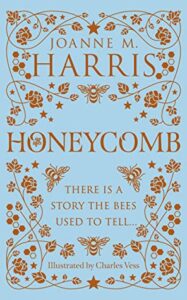 Honeycomb, Joanne Harris
Honeycomb, Joanne Harris
